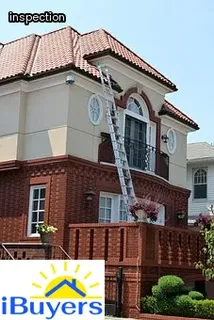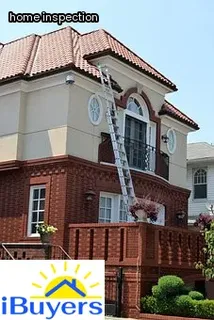When it comes to understanding home inspections, it is important for both buyers and sellers to know what to expect. A home inspection is a thorough examination of the property’s physical condition, conducted by a qualified professional.
The inspector will identify any potential issues that need to be addressed prior to purchase or sale. During the inspection, they will examine the home’s structure, features, and systems such as the roof, foundation, plumbing, electrical and HVAC.
They will also check for signs of pests and other health hazards. After the inspection is complete, the inspector will provide a written report documenting their findings and recommendations.
This report can help guide negotiations between buyers and sellers on any necessary repairs or replacements that may be required before closing. It is essential for both parties involved in a real estate transaction to understand how home inspections work in order to ensure a smooth process in buying or selling a home.

Before an inspection takes place, it is important for both sellers and buyers to begin preparing in advance. This can ensure that the process runs as smoothly as possible.
If you are a seller, consider providing access to all areas of the property and any documents that may be related to the home such as warranties or other paperwork. Ensure that any pest control measures have been taken care of and that all utilities are on and functioning properly.
If you are a buyer, take into account any additional services that may need to be requested such as radon testing or septic system inspections. Be sure to ask your inspector about any potential hazards or safety issues that should be addressed prior to the inspection.
Additionally, make sure to keep copies of all documents related to the sale so they can be easily referred back to if needed during the inspection process.
Preparing for a home inspection is an important step in the process of selling or buying a property. It is beneficial to have an understanding of what to expect and how best to prepare for the inspection.
As a seller, it is important to allow sufficient access to all areas of the home as well as any outbuildings and other features included on the property. Allowing adequate access ensures that inspectors can thoroughly assess all components of the house and detect any potential problems.
Buyers should be present during the assessment to ask questions about specific items that are identified by the inspector and understand how those items may impact their decision. Additionally, it is beneficial for both parties to ensure that all systems such as plumbing, heating, cooling, electrical, etc.
, are up-to-date and functioning properly prior to the inspection as this will help minimize potential issues that could arise during or after the sale. Making sure all necessary permits and paperwork are available can also help expedite the inspection process and provide peace of mind for both parties involved.
Lastly, cleaning up around your home before the inspection takes place can help create a positive impression with inspectors while also limiting distractions from any necessary areas they need to inspect. Following these steps will help create an environment where sellers and buyers alike can feel confident in their purchase or sale.

An important part of the home inspection process is inspecting the exterior of the home. This includes examining the roof, chimney, siding, windows, doors and any other outdoor components of the house.
A thorough inspection should include looking for any physical damage or signs of wear and tear that may need to be addressed. Home inspectors will also check for signs of moisture intrusion or pest infestations such as termites.
Sellers can prepare for a home inspection by ensuring all exterior components are in good condition and making sure there are no visible signs of maintenance issues before the inspector arrives. Buyers can expect to receive a detailed report outlining any necessary repairs or replacements that must be made before they purchase the property.
Understanding what to expect during an exterior inspection is essential for both buyers and sellers to ensure a smooth transaction process.
A home inspection is a thorough examination of both the interior and exterior systems and structures of a property. When it comes to investigating interior systems and structures, the inspector will be looking for signs of deterioration, damage or age-related issues that could affect the value and safety of the home.
They may also check for any evidence of pests, mold or other infestations. Electrical wiring, plumbing, heating and cooling systems are also inspected to make sure everything is functioning properly.
The inspector may also look for faulty insulation, ventilation issues or water damage in walls, floors and ceilings. All of these factors need to be taken into consideration when considering what to expect after a home inspection, as they can have an impact on the sale or purchase price of a property.

A home inspection is an important part of the buying and selling process, ensuring that all potential issues with a property are thoroughly examined.
Common items covered in a home inspection include the structure and foundation of the house, roofing and exterior walls, plumbing systems, heating and cooling systems, electrical wiring, as well as any visible insulation or ventilation.
In addition, inspectors may also evaluate interior walls, ceilings, floors, windows, doors and any appliances included in the sale.
It is important to understand that a home inspection does not guarantee that all problems will be identified; it simply provides buyers and sellers with insight into the condition of the property before closing so that any necessary repairs can be made prior to the sale.
A home inspection is an important part of the real estate process, as it provides a comprehensive overview of the condition of a property. While not all inspections will uncover major issues, there are some common findings that typically come up during the process.
These can include faulty electrical wiring, plumbing problems, structural issues such as cracks or water damage, and any safety hazards that need to be addressed. Sellers and buyers should both be aware of these potential issues and prepare for them before starting the inspection process.
Additionally, they need to understand what their options are in terms of remedying any problems that may arise. Finally, they should know who is responsible for covering repair costs so that there are no surprises down the line.

Explaining the Inspection Report to Buyers is an important step in the home sale process. Home inspections are designed to uncover any issues that may need attention before closing, so it is essential that buyers understand what they are getting into and what may be required of them after the inspection.
As a seller, you should have a clear understanding of the report before you present it to the buyer, as well as be prepared to answer any questions they may have about its contents. Additionally, buyers should also expect to receive a copy of the report from their home inspector that contains specific details about each item inspected.
This information can help guide conversations between buyers and sellers and provide clarity on what types of repairs or replacements may be required after the inspection. It is important for both parties to understand any issues found during the inspection and make sure everyone is on the same page regarding expectations for making repairs.
After a home inspection, it is common for buyers to request repairs from the seller. Depending on the terms of the purchase agreement, the buyer may be responsible for certain repairs or upkeep costs, such as replacing broken windows or loose shingles.
In some cases, sellers may agree to make repairs before closing on a home if it is in their best interest. It is important to note that sellers are not obligated to make any repairs and buyers should not expect them to do so without proper negotiation.
If repairs are requested, it is essential for both parties to review the details of the request and document any agreements made in writing. It is also important that buyers remain aware of their rights throughout this process and know when they can legally back out of an agreement if necessary.

Before closing a home sale, it is important for both the seller and the buyer to ensure that any issues raised in the home inspection have been addressed. Depending on the outcome of the inspection, there may be a variety of tasks or repairs that need to be completed before closing.
All parties should make sure that these are taken care of in a timely manner to avoid any potential delays. Home inspections can yield minor or major findings, so it's important to accurately assess and prioritize each issue so they can be fixed accordingly.
After all outstanding items have been addressed, buyers will feel secure in their purchase and sellers can confidently move on with the sale. Both parties should do their part to make sure all details related to an inspection are taken care of prior to closing on a home.
After reviewing the home inspection report, it is important for both buyers and sellers to take action. Depending on the scope of the inspection, this may include making repairs, scheduling additional inspections, or renegotiating terms.
If repairs are needed, both parties must agree whether these will be made before closing or if a price reduction should be negotiated to cover the cost of the repairs. If additional inspections are required, such as radon testing or lead paint testing, then both parties need to decide who will be responsible for scheduling and paying for these tests.
Furthermore, if any major findings are included in the report, buyers and sellers may want to renegotiate certain terms of their agreement. Home inspectors can provide advice on how to proceed with any repair requests or renegotiations concerning the findings noted in their report.

Negotiations after a home inspection can be stressful for both buyers and sellers. It can be difficult to know what to expect, but understanding the process and preparing for it in advance can help ease some of the tension.
After an inspection, the buyer will receive a report outlining any issues that may need to be addressed. Depending on the severity of the issues, negotiations may take place around repairs or credits to cover them.
Sellers should anticipate potential repairs and be prepared to address them before negotiations begin. Buyers should understand what they are willing to accept and negotiate accordingly.
Both parties should work together to find a solution that is satisfactory for everyone involved. Having an experienced real estate agent present during these conversations can help ensure all parties are represented fairly and that a successful outcome is achieved.
Once a home inspection has been completed, both the seller and buyer have certain responsibilities and rights. As the buyer, you have the right to review the inspection report in detail and obtain clarification from the inspector on any areas of concern.
Additionally, you should work with your real estate agent to determine what items need to be repaired or replaced by the seller prior to closing. Depending on the severity of any issues found during the inspection, you may want to renegotiate with the seller regarding a lower purchase price or further repairs.
Additionally, you may want to consider hiring a third-party contractor if certain repairs are beyond your expertise. As a buyer, it is also important that you provide a copy of the inspection report to your mortgage lender as they will likely request this information before closing.

After a home inspection, both buyers and sellers must consider the findings of the inspection report and devise strategies for moving forward with an inspection agreement. In some cases, the buyer may request repairs or a renegotiation of the sale price based on any issues that were uncovered during the inspection.
Sellers should be aware of their rights and obligations when it comes to negotiating any requested repairs. Buyers should also understand that they cannot negotiate repairs outside of what is outlined in the inspection agreement.
Additionally, buyers should recognize that they are responsible for covering repair costs if there are any serious issues uncovered during the home inspection process. If a buyer requests an abnormally high amount of repairs or asks for a reduction in sale price, sellers should consult with their real estate agent for advice on how to move forward with negotiations.
Sellers and buyers alike should remember to remain focused on the long-term benefits of the home purchase, rather than focusing on short-term inconveniences caused by any needed repair work.
Working with a real estate agent during a home inspection can be incredibly beneficial for both buyers and sellers. Agents are knowledgeable about the market and have an understanding of what needs to be done to ensure that the inspection goes smoothly.
They can help negotiate any issues that arise, such as repairs or changes in the sale price, and can provide insight into potential problems that may need to be addressed. In addition, agents also have access to helpful services such as home warranty companies and pest control services that can help make sure the house is in good condition prior to closing.
Most importantly, they provide expertise and experience throughout the entire process, giving buyers and sellers peace of mind when it comes time to sign the dotted line.

Sellers who are preparing to put their home on the market should know what to expect after a home inspection. After the inspector has completed their work, they will typically provide a detailed report of any issues that must be addressed before the sale can go through.
As a seller, you may have to deal with repair requests from buyers or their agents as part of the negotiation process. It is important to understand your rights and obligations under local laws and regulations when it comes to making repairs prior to closing on the sale.
If necessary, consult a real estate attorney for advice; they can help you understand your options and responsibilities in this situation. Most importantly, remain open minded during negotiations and be prepared to compromise if needed in order to reach an agreement that works for both parties.
Following up on repairs before closing the deal is an important step in the home inspection process. It is necessary for both sellers and buyers to ensure that any issues identified by the inspector have been addressed correctly and in a timely manner.
Depending on the type of repair, the seller may be responsible for making these repairs, or it may be the buyer's responsibility. It is essential to confirm what repairs are needed and who will be responsible for them prior to closing.
Once this has been agreed upon, it is important to make sure that all repairs have been completed and verified by a professional before closing. This can help to ensure that all parties involved are satisfied with their purchase or sale and avoid any potential problems down the road.
Negotiating after a home inspection is an important part of the home buying and selling process. During a home inspection, potential buyers are able to identify any issues with the home that may need to be addressed before closing.
As a seller or buyer, it is important to understand what can be negotiated after a home inspection in order to ensure that all parties have an agreeable outcome. Common items that can be negotiated include repairs, replacement of appliances or materials, and even financial compensation for any significant defects identified in the report.
Sellers should also consider if they will cover any costs associated with the repairs, or if they will require the buyer to foot the bill. Buyers should also take into account their own finances and determine how much they are willing to pay for repairs or replacements.
It is also important to keep in mind that negotiations can often lead to compromises between both parties; sellers may agree to pay for some of the costs while buyers may agree not to ask for further reductions in price due to minor issues noted during the home inspection. When negotiating after a home inspection, it is important for both sides to remain open-minded and flexible as this will increase the chances of reaching an agreement that all parties can live with.
A: Depending on the issue, the buyer may request that the seller make repairs or replacements to items listed in an addendum. Alternatively, they may ask for a price reduction or other compensation to cover their costs for making the repairs themselves.
A: After a home inspection, the appraiser will assess the condition of the wood materials used in the construction of the home and compare it to similar homes in order to determine its value for the home appraisal.
A: A home inspection should not directly affect major appliances or homeowners insurance, however, depending on the outcome of the inspection, the buyer may choose to renegotiate terms such as earnest money or additional coverage through their home insurance.
A: After a home inspection, the buyer and seller usually negotiate any necessary repairs or credits based on the inspector's findings.
A: After a home inspection, the homeowner should address any identified fire hazards and assess whether additional fire safety measures are necessary. Additionally, they should conduct a title search to confirm that there are no unresolved liens or other potential issues with the property.
A: After a home inspection, sellers should review the buyer's report and determine what repairs they are willing to make. Buyers may also request additional repairs or credits to complete the sale.
A: After a home inspection, the inspector will provide a written report detailing any issues or potential problems discovered during the inspection. Depending on the outcome of the inspection, buyers may be able to renegotiate with the seller for repairs or further negotiations on the purchase price.